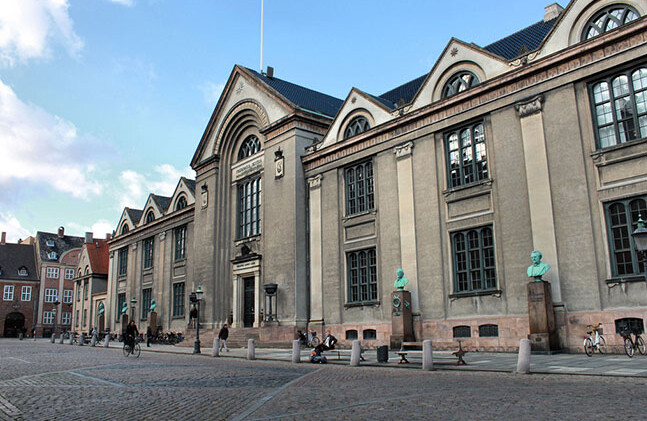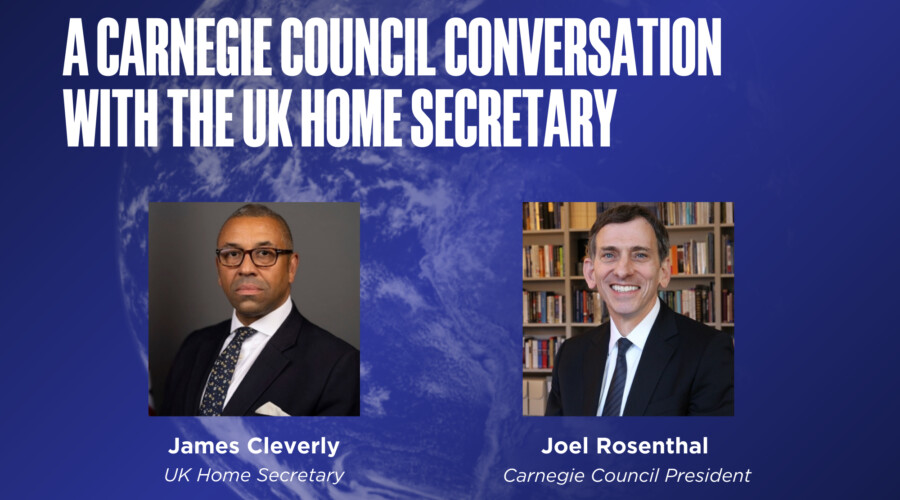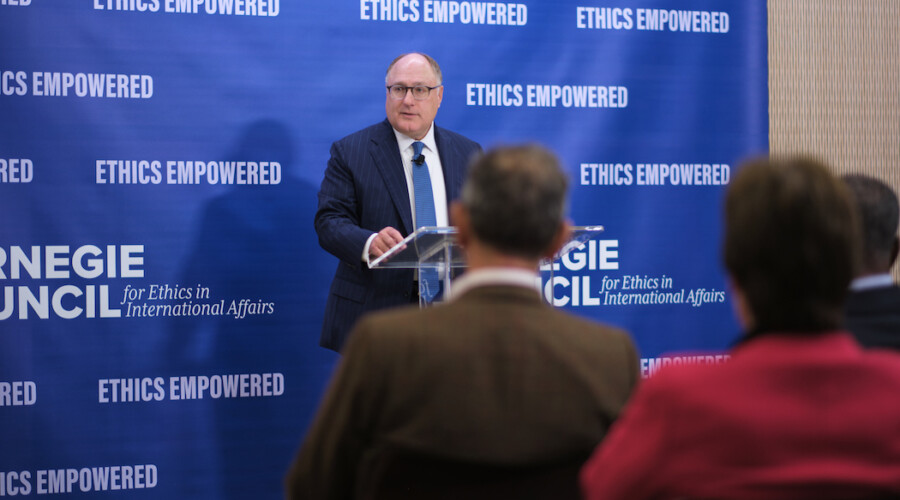Can cultural rights become a global discourse for supporting inclusive social and political development, and for fostering intercultural dialogue for the mutual understanding of cultures? And can cultural rights become a prime mover—an enabler and driver for development by providing a much-needed cultural legitimacy for human rights? These questions motivated my Dutch colleague, Assistant Professor Lucky Belder at the University of Utrecht, and me to organize the conference "Negotiating Cultural Rights" which took place on November 13 and 14, 2015, in Copenhagen, Denmark. The conference coincided with the terrible events in Paris on November 13—an event that sadly underscored the need to discuss issues relating to culture, cultural differences, and cultural rights.
As Ahmed An-Na'Im, one of the first scholars to take the issue of cultural rights seriously, once maintained, "the lack or insufficiency of cultural legitimacy of human rights standards is one of the main underlying causes of violations of those standards."1 Cross-cultural legitimacy is important; people around the world are more likely to observe normative propositions if they believe them to be in accordance with and sanctioned by their own cultural traditions. This is no doubt the reason why, on the occasion of the 60th anniversary of the Universal Declaration of Human Rights (UHDR), the UN declared Culture to be one of six cross-cutting themes of the UN Agenda, the others being Dignity & Justice, Development, Environment, Gender, and Participation. The following year, in 2009, cultural rights were institutionalized when the UN appointed Farida Shaheed as special rapporteur in the field of cultural rights.
The 2008 choice of Culture as a cross-cutting theme was explained as follows:
...The concept of Human Rights is bound closely to the belief that culture is precious and central to our identity. The way we are born, live and die is affected by the culture to which we belong, so to take away our cultural heritage is to deny us our identity. At the same time, we can all benefit from our experience of other cultures and we have something to offer them in return.2
In the last few decades, Cultural Rights have become increasingly relevant in the context of globalization (post-colonialism, post 9/11, shifts in global power structures, cultural diversity) and the protection of intellectual property (IP) rights. Furthermore, cultural rights are seen as key to the realization of the Millennium Development Goals.3
At the scholarly level, new and important works on culture, cultural heritage, and human rights have helped increase the interest in this particular corner of human rights research. The last few years have seen the publication of, among others, Helaine Silverman and D. Fairchild Ruggles, Cultural Heritage and Human Rights (2007); Francesco Francioni and Martin Scheinin, Cultural Human Rights (2008); and Federico Lenzerini, The Culturalization of Human Rights Law and Ana F. Vrdoljak, The Cultural Dimension of Human Rights (both 2014).
This is particularly interesting as international legal instruments such as the International Bill of Human Rights are comparatively silent on cultural rights. The UDHR contains only two articles on these rights—Article 26 on the right to education and Article 27 on the right to participate in cultural life and in scientific progress. The same is true for the International Covenant on Economic, Social, and Cultural Rights (ICESCR) which mentions the right to education in Article 13, and cultural participation, the right to benefit from scientific progress and artists' rights in Article 15. UNESCO has produced both soft law within several distinct areas of cultural rights and policy—the right to education, linguistic rights, traditional culture and folklore, and cultural diversity—and binding treaties relevant to the area of cultural rights such as the UN Declaration on the Rights of Indigenous Peoples (2007) and to the protection of cultural heritage, both material and immaterial.
During the tenure of her mandate, which ran until November 1, 2015, Farida Shaheed has published reports on the following themes:
2010 - Implementing cultural rights. (Nature, issues at stake, and challenges)
2011 - Access to cultural heritage
2012 - The right to benefit from scientific progress and its applications
2012 - Cultural rights of women
2013 - The right to artistic freedom
2013 - 2014: History and memory
2014 - The impact of advertising and marketing practices on the enjoyment of cultural rights4
2015 – Intellectual property regimes
Together these reports by the Special Rapporteur provide a new standard on cultural rights. We intended to be among the first to highlight this by inviting international experts to comment on each of Shaheed's reports. The speakers were asked to reflect upon the main conclusions concerning the meaning and the position of cultural rights in the 2010–2015 Reports, as well as on what the implications of these conclusions are for international relations, the international legal order, and for cross-cultural understanding, broadly speaking.
Cultural rights are truly a minefield. For years, many human rights lawyers have argued, for example, that they are non-justiciable, abstract political commitments that cannot be enforced as legal rights in a court of law. In spite of the fact that today all generations of rights should be considered equally justiciable as all states are obliged to respect, protect, and fulfill economic, social, and cultural rights (and not only civil and political rights),5 many legal scholars, including human rights scholars, know little about and show very little interest in cultural rights.
Other areas of contention include the possible exclusivity of cultural rights—the way in which these rights bind a particular group or community together and create a sense of belonging and identity for members of this group only, rather than provide for and appeal to the shared humanity and dignity of all people around the world. The underlying problem here is one of relativity versus universalism. Cultural rights are therefore, critics contend, different from and indeed antagonistic to other human rights as well as to established doctrines and principles of international law.6
Among these established doctrines is the belief that human rights are individual rights. This principle is obviously challenged by current tendencies to conceptualize cultural rights as group or collective rights only. It is entirely understandable that minority or indigenous groups wish to preserve their particular cultural identity and the social and cultural cohesion of their particular groups, critics admit. But what about the rights of the individual members of these groups to 'opt out' and pursue opinions and ways of life that are not shared by the greater community, for example—and what about cultural claims that directly clash with established individual civil and political rights such as the right to property or the right to free speech?7
These are very sensitive matters that are at stake here. Cultural rights are at the core of individuals' and groups' ability to form a meaningful identity, maintain dignity, and achieve self-respect. It is therefore important to step back sometimes and to take a look at all the different claims and sides involved. Unlike, say, NGOs or other activist interest groups who have the best interests of one particular group of people in mind, academic scholars can look at the more general picture—can balance different claims, for example, and include issues into the discussion that my blur or complicate a one-sided or black-and-white view of the world. This is important, and this is what we did at the Copenhagen conference.
Both Shaheed and her successor as UN special rapporteur, Karima Bennoune, were present at the conference. This gave us a unique opportunity to discuss with these key players ways in which we can all work toward making cultural rights a future public good. We intend to follow up with a volume of essays based on the talks and discussions at the conference.
Toward the end of the conference, I did an interview with Shaheed in which she talks about the right to culture in human rights law as the celebration and protection of humankind's creativity and traditions: Watch it here.
NOTES
1 Abdullahi A. An-Na'im, Human Rights in Cross-Cultural Perspectives: A Quest for Consensus (Philadelphia: University of Pennsylvania Press, 1992), 19.
2 See http://www.ohchr.org/EN/UDHR/Pages/CrossCuttingThemes.aspx.
3 See Background Paper, 7 March 2014 for a meeting held at United Nations Headquarters in New York on Monday, 5 May 2014, in cooperation with UNESCO. The Background Paper and the accompanying letter are available at http://www.un.org/en/ga/president/68/pdf/letters/03072014TD%20Culture%20and%20Sustainable%20Development.pdf (last accessed on July 25, 2014). See also the UNCTAD creative economy reports published every two years on global creative industries UNCTAD/PRESS/PR/2013/16, released 15 May 2013.
4 See http://www.ohchr.org/en/Issues/CulturalRights/Pages/SRCulturalRightsIndex.aspx.
5 See Federico Lenzerini, The Culturalization of Human Rights Law (Oxford: Oxford University Press, 2014), 112. Lenzerini calls this a "very significant recent development of international human rights law."
6 Francioni, "Culture, Heritage and Human Rights: An Introduction," 3.
7 See e.g. Laura Reidel, "What are Cultural Rights? Protecting Groups with Individual Rights." Journal of Human Rights 9.1 (2010): 65–80.




